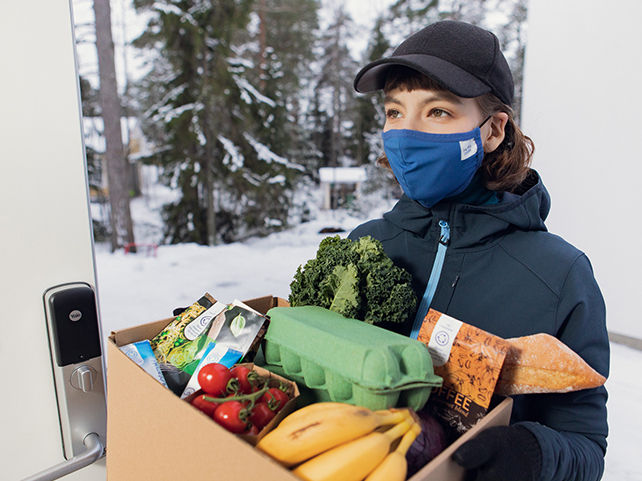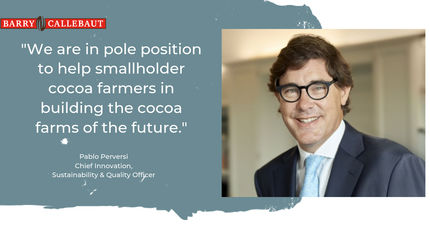We believe food packaging is fundamental to improving the resilience of food systems
It was 1906 when Alfred Henry Lewis, an American journalist and lawyer stated, “there are only nine meals between mankind and anarchy.” Since then societies have changed considerably, with over 56% of the global population living in urban areas, compared with less than 15% in 1900. As a result, over time our food systems have increasingly become more sophisticated with more food moving from farm to processor to consumer than ever before. Recently, the importance of our food systems has been highlighted by the outbreak of the coronavirus pandemic, which resulted in rapid changes in demand, closures of borders and restrictions in the hospitality sector, reducing accessibility to food and challenging countries’ food systems.

Huhtamaki
The recognition of these risks has led the European Commission to begin the very welcome process of developing a contingency plan aimed at ensuring better preparedness and coordination for future potential crises that could threaten food security at an EU level. As part of the process the European Commission is currently running a public consultation on the plan, and has invited stakeholders to comment, which Huhtamaki has done.
Food packaging is integral to the product it contains
We think it is self-evident that packaging does not exist on its own but is integral to the product it contains. Any failure of the food packaging supply chain has a significant effect on food supply chains, from farmer to manufacturer to retailer to end-consumer. This affects both food retail and foodservice operators. Having packaging supply chains capable of meeting the challenges of Covid-19 has been crucial in supporting lives and livelihoods during the pandemic; facilitating the availability of safe, hygienic, and secure food products. It is why the packaging industry was recognised by governments across the world as an essential industry, and therefore one that needed to continue operate throughout the pandemic, which it did. And, without the right packaging it would have proved difficult for cafes and restaurants to provide take-away food in a Covid-secure manner, as the European Environment Agency recognised in November 2020.
To develop the best possible contingency plan, we believe policymakers should include raw material suppliers and food packaging industry representatives in the development of the contingency plan, also drawing on the expertise of the European Food Safety Authority and the European Centre for Disease Prevention and Control. We recommend that the contingency plan explicitly addresses the multiple roles that food packaging plays, including in terms of producer-supply and consumer-accessibility.
Like any good contingency plan, the European Union’s should become a living document, able to assess risks and challenges at an early stage. We therefore also recommended that all current and future policy proposals are subject to a specific food supply and security impact assessment, incorporating Life Cycle Thinking, to examine and quantify any potential impacts of proposals on the food packaging supply chain; especially impacts at time of crisis. It is our view that such stress testing would help ensure the long-term resilience of food systems.
As a leading advanced packaging manufacturer, we know that packaging is an integral part the product it contains. We have seen how having a European packaging supply chain capable of meeting the challenges of Covid-19 has been crucial in supporting EU citizens during the pandemic. We are committed to continuing to play our part facilitating the availability of safe, hygienic, and secure food products across the EU and elsewhere.
Other news from the department business & finance
Most read news
More news from our other portals
See the theme worlds for related content
Topic world Food safety
Food safety is at the heart of the food and beverage industry. It ensures that the food we eat every day is not only nutritious, but also free of harmful contaminants. From field to plate, the industry monitors and regulates every step of the process with strict quality controls, advanced testing methods and continuous research.

Topic world Food safety
Food safety is at the heart of the food and beverage industry. It ensures that the food we eat every day is not only nutritious, but also free of harmful contaminants. From field to plate, the industry monitors and regulates every step of the process with strict quality controls, advanced testing methods and continuous research.





























































